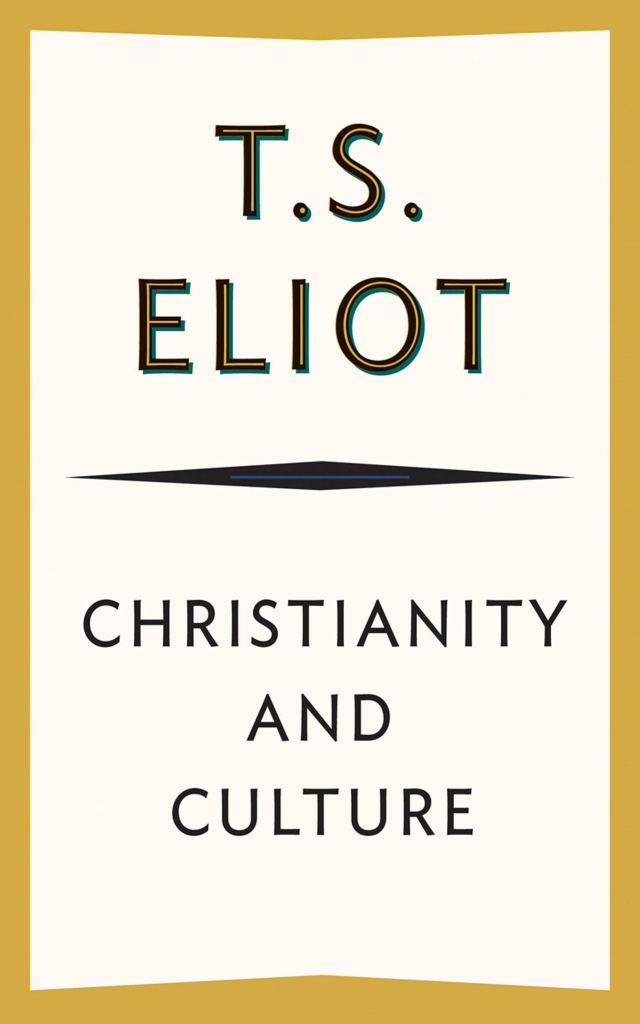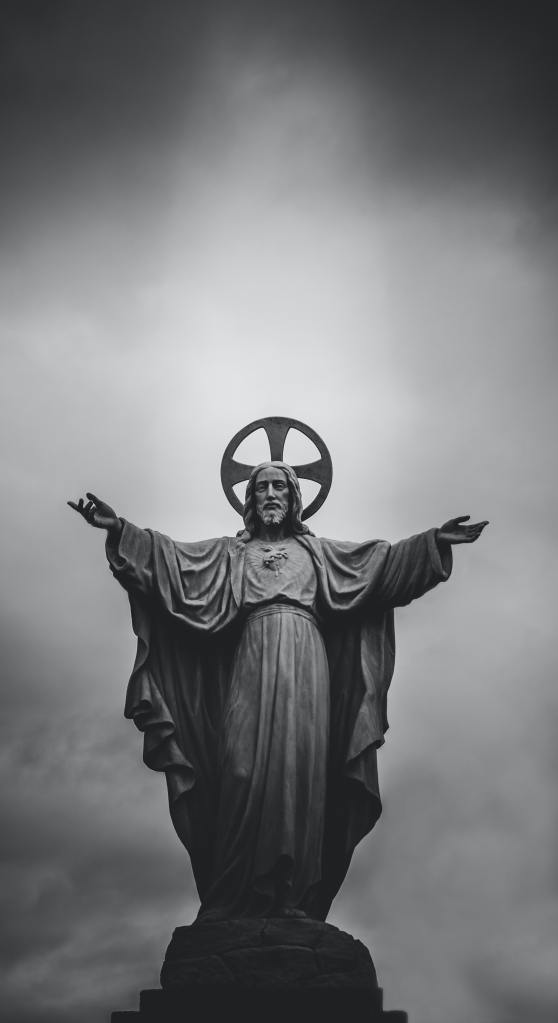
Essays of T.S. Eliot
I studied Eliot as an undergraduate, and not once was his Christianty mentioned, so it’s interesting to discover how fundamental it is to his outlook.

This book contains two long essays: ‘The Idea of a Christian Society’ (1939) and ‘Notes Towards the definition of Culture’ (1948) followed by an appendix: ‘The Unity of European Culture’ which appears to be a transcript of three linked talks given to a European audience in the post-war period. I have a passionate yet stormy relationship with Eliot’s oeuvre; his poetry is marvelous and challenging and representative perhaps of the last flame of real poetic merit of the English language. I’m happy to be proved wrong one day, and I’m sure he would be too. So, naturally, when I discovered these essays by complete accident I ordered a copy to read.
One of the causes of the totalitarian State is an effort of the State to supply a function which the Church has ceased to serve; to enter into a relation to the community which the Church has failed to maintain…
‘The Idea of a Christian Society’
The essay, sitting as it is right on the edge of the second world war, has a kind of breathless tension to it; Eliot is trying to map out exactly and in very practical terms how a CHristian society could be manufactures and sustained, and what elements would make up such a society. He is of course offering an alternative to what he is seeing around him, and a trajectory away from the foundational elements of the West. One does not get the feeling that Eliot believes that such a thing as this Christian society he is mapping out is actually a possibility; despite all its practicalities, there is a sense of impending doom, a crucifiction without a resurrection. But this tension only makes the essay more beautiful and tragic. I mean, it’s 2022 now, and we know this didn’t happen, in fact, the complete opposite.

We know from our reading of history, that a certain tension between Church and State is desireable
‘The Idea of a Christian Society’
But this doesn’t make the essay any less valuable, in fact, it elevates it further. We, looking back, can see that not only was there an alternative to what has developed around us like a virulent social cancer, but that alternative had been at least partially prepared and mapped out loosely before it all went so horribly wrong. There is a reset button albeit not something one might simply press.
in ‘Notes Toward a Defintion of Culture’ we have Eliot experimenting with all the various ways in which the term ‘culture’ can be mobilised and which ways are the most useful. Much of it reminds me of Roger Scruton and the importance of culture being something that eminates from the bottom, up. He also discusses concepts such as class and ‘elites’ in the context of culture, and in particular, English culture of course. Things must bind together for a culture to be healthy, but at the same time, things must be in a constant sense of tension for such things as innovation. Heresy itself is not the enemy, it’s the acceptance of heresy as the norm. In fact, Eliot requires heresy so that orthodoxy might remain robust and healthy, the edge of it’s blade remaining keen: the struggle between centrifugal and centripital forces.

The culmination of this is in his chapter on culture and education. Writing as he was in 1948, it is amazing to read what Eliot beleives will happen to education in the West under the dogma of equal opportunity, for it’s as if he had seen a vision of 2022 exactly. The rise of the State above the family unit and the ever-increasing dumbing down of the democratic model of excellence is delinated brilliantly and with rare deadpan humour.
A measure which is desirable as a palliative may be injurious if presented as a cure.
‘Notes Toward a Defintion of Culture’
The final three short talks on ‘The Unity of European Culture’ is of interest in the sense of the idea of the European Union which came much after, but here Eliot does limit himself to a discussion more specificially about language and poetry, which remains very interings for its own sake.
Overall, the book is a tour de force of intellect and artistic measure and contextualises his poetry even further.














